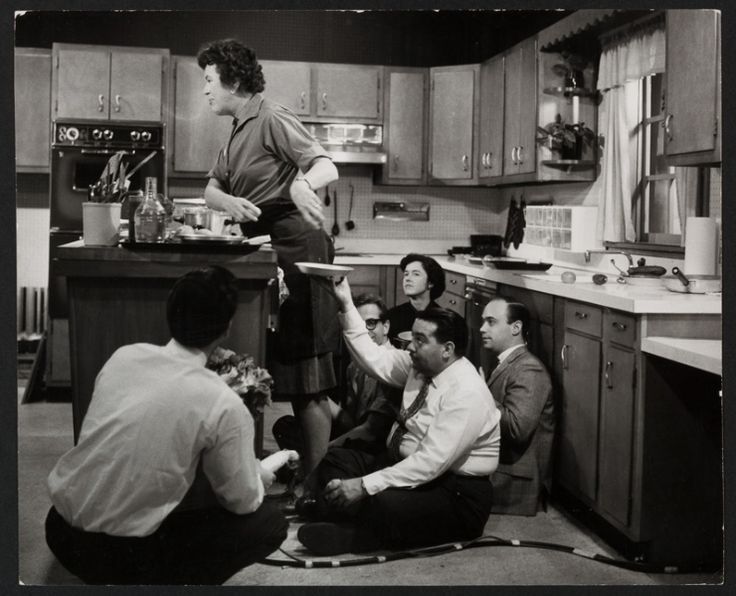
Larping is a skill, just like public speaking, writing, or painting. Practice makes better. So does self-awareness and concerted focus on improving your skills.
I do think we all inherently recognize good players when we encounter them. Of course, there are many types of “good” player, just as there are many sorts of great painter. Is Artemisia Gentileschi or Caravaggio a better artist? It all depends on your preferences and perspective. And in the case of players, at least, it also depends on whether we’re talking about an intimate freeform game for five, or a large costume drama of three days.
There’s no one recipe for what makes a better larper, but my hope is that through discussing some different skill sets, I, and perhaps you, dear reader, can think about how to become better players.
I have the benefit of having a large and diverse group of international larpers on speed dial…er…social media, and I plumbed the depths of their expertise in assembling this post.
Social Skills

Larp is a social activity, so you better have at least a little savvy, kiddo. Nothing too complicated here, but getting the basics down at least helps contribute to a positive atmosphere in your game group. Happy, functional communities make better larps.
- Introduce yourself to other players. Be friendly and inclusive, especially toward new people. If you’re new, introduce yourself around as much as you can stand. It’s easier to larp with people you’re comfortable with. If you’re part of an established group, try to give the noob some good play during game as well.
- Basic hygiene. Sounds silly, I know, but bathing regularly and brushing your teeth means you won’t have crazy BO or halitosis, which is good. Especially if you might be standing close to someone.
- Confidence. Confidence is attractive, and it’s the sort of thing that allows you to take risks in play. If you don’t have it, fake it till you make it. If you notice someone else without it, think about what you can do to help build them up.
- Don’t be an asshole. This means caring about other people’s feelings and not breaking the game. At its further reaches, it means being a good social steward for the community–helping out the organizers on occasion, talking with someone who needs to talk after a game, and generally being a caring and kind person.
- Don’t hog the spotlight. Be aware of how much social space you take up out of the game. Sometimes, this can mean simply shutting your mouth until you are asked a question. Larps are better when all players feel valued, and it’s hard for this to happen if one or a small group of people are always in the social limelight.
- Sharpen your social antennae. Make a point of noticing who is getting a lot of play and who is left out. Try to see your fellow players–and their characters–for who they are, which is the first step to helping include others, according to Norwegian designer Ole Peder Giæver.
- “Ask permission. Don’t make assumptions. Unsure if something is ok? Ask first.” This reminder brought to us by John Stavropoulos, a US designer and larper. Be sensitive to others’ social and physical boundaries so that you do not cross them during play. When in doubt, take a break and talk it out. As he added, “If someone is being a jerk, talk to them, be friendly but direct, make sure it isn’t simply a misunderstanding. If they are still being a jerk, stop them or talk to someone who can stop them.”
- Create off-game trust. Several people mentioned that it’s easier to play with people one trusts out of game. So get to know your co-players out of game over the course of one or more sessions.
- Talk to people afterwards. Debrief with the group, particularly people you’ve had intense scenes with. Make sure people are OK. Be caring. This works to bond the group and help you go deeper on later jaunts, and it can help folks who are having post-larp feelings deal with those emotions.
Acting Skills

In larp, we act as if we are other people. So it makes sense that having some acting chops helps. In particular, it may help other players suspend their disbelief and really immerse into the world of the larp.
The Basics
Take direction well by listening to the organizers. They’ll tell you a ton of stuff that you need to know and if you actually take that in, the larp will be better for everyone. Read the handouts. I cannot stress this enough.
- Know the setting and play style. You know how Bill Murray acts totally differently in What About Bob? and Lost in Translation? If this is a realist drama, save your slapstick routine for another game.
- Invest in the setting. Take it seriously. If you’re breaking into talk dinner during the middle of a tense relationships scene, you’re probably screwing up other people’s games.
- Think a bit about your character arc. A good arc has a beginning, middle and end. Is your character’s story about a last chance to change? Or is there some more pressing external dilemma? Sometimes the game itself will impose this arc on you, but often it’s up to you as a player to create one. I find that sometimes I need to play a bit in order to understand what my character arc is about–but I also find that stepping out of game mentally from time to time to think about where my character might be headed increases my enjoyment–and my acting skills immensely.
- Take direction. In some games, the organizer will push you in one direction or another for the good of the game. Sometimes other players try to tell you stuff subliminally through scenes–gear your sensors to try to pick up on that.
- Ask other players to support you. Finnish designer and larper Juhana Pettersson wrote that over time, he’s learned a lot about how to be a better player. “One example is asking other players to support aspects of my character I can’t realize by myself. I did maybe 20 years of roleplaying and larp before I learned how to do that properly.” If you want people to bully you, step out of game and ask them to do so, or better yet, say so during the workshop.
Advanced Acting
- Be shameless. Finnish larper and academic Jaakko Stenros wrote it best. “Shamelessness is pretty awesome. People who trust the role-play agreement, that one should not make assumptions about the player based on the character and vice versa. Doing things, also terrible, shameful, silly, idiotic things, without winking or irony. Throwing yourself at the larp. That kind of openness breeds trust and intense play. (And no, not shameful to others, but shameful to self. Think Philip Seymour Hoffman.)”
- Be self-aware about your physicality, and voice. Canadian performer and larper Johanna MacDonald put it thusly: “[A great larper is] self-aware enough to be able to control their voice and body (some acting basics here make for great characters; in my experience people who are good actors simply have more versatility in this because it’s a skill to know what you look and sound like).” There are a ton of acting exercises out there that teach you how to use your body and voice. Books too! So get reading, or take a class.
- Be self-aware of your emotions, particularly if you are playing near the edge. MacDonald again: “[A great larper is] self-aware enough to be able to play with their own emotions, and if they like to play near their limits, [is] courteous about safety.” This also means being responsible for your own well-being in scenes and calling for a cut if needed.
- Know your strengths and weaknesses as an actor, and challenge them sometimes. If you are truly terrible at accents, maybe don’t play a role that demands an accent. At the same time, I think that most long-time larpers find that they play the same role over and over again. Try to be aware of this and stretch yourself to try new things.
- Get a feedback group. Danish larper Søren Lyng Ebbehøj tells me he has a group of buddies who have vowed to give each other friendly, loving feedback on how to improve their larp performances.
Steering Skills

Steering is when you make your character do something for out of game reasons, justified to fit whatever’s happening diegetically (in-game). For example, if I see you looking lonely in the corner, and even though you’re a commoner and I’m the King, I find a nominally in-game reason to go over there and talk to you. “Peasant. You look like a trustworthy woman. I could use one of those on my staff…”
In larp, we all steer all the time. So it makes sense to try and get better at it. The art of steering can be subtle, though; still, I have a few suggestions.
- Try to figure out what sort of steering is appropriate to the game. This requires having a sense of the game as a whole and the place of your character within it. If this is a murder mystery, emphasis on the mystery, I might not want to steer the game towards a political struggle aimed at taking down the police, because that probably doesn’t serve the larp’s vision, though it might be really fun for me.
- Do some social engineering to ensure everyone gets play. This tip comes from Danish larper and designer Søren Lyng Ebbehøj, who talked to me about what he does when he’s part of a group that has in-game authority, for example, in a feudal setting. They try to set up channels for people to see the patriarch–for example, they make a rule among their group that the patriarch can only make a decision if there’s another member of the family present, or that anyone can approach the King so long as they talk to the steward first. This tactical approach can help share the spotlight around, preventing one person from getting all the good play. Though I plunked this in the steering section, I think this really falls more under social engineering, since it revolves around thinking about social dynamics before the game starts and coming in with a plan.
- Share secrets and plot points your group may have access to. Keeping secrets–while practical in real life–is the sort of thing that cripples a larp, as it can create a dinner party where no one says that they are a vampire. Letting secrets into the wild can make other people’s games. It can also set up great scenes for you and others later on, as failure is often more interesting to play than success. When the vampire lord finds out you betrayed him at the big banquet, how awesome is that going to be to play on? Find in-game reasons–character flaws, etc. to let the dogs out.
- Give people what they need. Swedish larper Karin Edman has a great technique for inclusive play. She talks to other players out of game to try to understand what they need during game, and then tries to help deliver on that. However, explicit interviews are not the only way to go. As she told me, “I prefer snooping around and then surprise them [other players] by giving them something they crave.”
Improv Skills

Plays have scripts; larps don’t. This means players are often called to make up stuff on the fly. So improving your improv skills can help make you shine.
Basic Skills
- Don’t block/Yes and. Accept the suggestions others are offering. If I say, “It’s raining,” and you say, “no it’s not,” it’s hard to know where the scene can go from there. In larp, we build a shared reality together, and part of sharing is valuing the contributions of others. When possible, say “Yes and–“. “It’s raining today.” “Yes, and it makes me feel unusually melancholy…” is a much better start to a scene. Note that you can also say “No” without blocking. “Remember that time we killed a guy?” “No, I was too far gone on quaaludes…” accepts the core suggestion–that we once killed a guy together, while adding a new element to the narrative–we were on drugs. Try to accept other people’s ideas and build on them.If you do feel you have to block a suggestion–it strongly conflicts with your character, you’re really not into that plotline, etc., it’s best to do that in as interesting a way as possible. In extreme cases, you might just have to pop out of character and say, “Sorry X, I’m really just not up for playing on that today.”
- Be obvious. You don’t need to make up complicated plots and back stories in order for your character to be interesting. In fact, it’s often the opposite–being mundane can fit really well with a realistic setting, and it can be a refreshing change in a fantastical setting. When in doubt, go with the obvious choice. Obvious suggestions are easy to accept and build upon.
- Think narratively. For me, in a game, I’m trying to think about what would make a fitting arc that’s not too on the nose–not just for me, but for other characters too. It’s possible to push this a bit as a suggestion for other players to latch on to…or not. For example, it can be interesting to make the ladies’ man character experience the one who got away, etc., etc. Losing and failing are generally really, really interesting.
- Don’t make something new if you can use what happened before. US larper John Stavropoulos suggests that it’s better to try to tie things into one another when possible. If you can, use the narrative building blocks that are already there to get what you want out of the game.
- Go with the flow. Sense the energy of the group and try to fit in with that. Relax. This roleplaying isn’t so hard, is it?
- Sense the spotlight. Sometimes the scene isn’t about your character, but about someone else’s. When it’s your turn to be a supporting player, do it cheerfully. As Stavropoulos put it, “Spotlight is like a team sport… spotlight is the ball, seize it, pass it, keep it moving.”
Advanced Improv-ing
Yeah, there have been a few books written about this, and you should probably read them. But in the meantime, here are a few ideas.
- Bring your own picnic basket. Danish larper Søren Lyng Ebbehøj used this phrase to mean, essentially, “come prepared to make your own fun.” Put a couple ideas for character development in your back pocket, in case the game falls apart. You might make some agreements with other folks ahead of time or during the game to pursue plotlines of your own making. In other words: come prepared to improvise.
- If you think something sucks, figure out how to make it awesome. Stavropoulos suggested this one. Essentially, if the game is going badly, wrack your brain to help get it back on track. This might take the form of talking with the organizers or other players, or finding something from your picnic basket to bring into game play.
- Use caution when improv-ing. In a larp, it’s important for the narrative to have what Norwegian theorist and designer Eirik Fatland calls “coherence,” (paper forthcoming). In other words, it’s important for the new stuff I improvise not to contradict with the new stuff you improvise. As you can imagine, maintaining coherence is easier in a small, short game than it is in a big long game. In a game of four players, you can get away with wackier improv than in a game with 30. So when you improvise, you want to fit your creations into the frame of the game narrative. This gets back to the social instruction “don’t break the game.” In general, it’s cool to improv about your character’s past, within limits. It’s not cool to pretend you’re the King of town if your character sheet says otherwise…and probably the other players won’t go along with it.
Logistical Skills

The nuts and bolds of a roleplaying experience.
- Help with site set-up. Got special skills? Help make the game even better by making it rain blood on those adventurers, or teaching the organizers how to do it themselves.
- Assemble a great costume and bring some ace props. Do you sew? Do you know a lot about makeup of the 1920s? In many games, looking the part helps people feel like the game world is real. And sometimes others need help with their costumes too.
- Know the rules. In games with a rulebook, having someone who knows the rules around saves a lot of time.
- Know the meta-techniques and when to use them. If you’re in a game that uses monologuing, a black box, or other tools that help the narrative along, know what they are and how to use them. Use them wisely–to get other people into game, to provide emotional context, and to make your own play better.
- Feed/clothe the world. Or anyway, the game. Formally or informally, many players forget that extra coats or bringing your own grub is a necessity at some larps, and they’ll go cold and hungry unless someone nice lends them a blanket or gives them a bowl of soup.
Narrative Skills

Sure, many of the other sections contain stuff that pertains to narrative and character building–these are loose, overlapping categories, my friends), but I felt there were a few tips that didn’t fit under other headings.
American designer and larper John Stavropoulos had a bunch of great tips, including the following:
- Embrace failure. Revel in consequences. Play for drama.
- Find the balance between believable and unexpected.
- Make your character interesting to everyone, not just yourself.
- Have strong, clear goals and motivations.
- Tie your character to others.
- Give your character a weakness. Be vulnerable.
- Play a character that feels real within the context of the game’s specific genre, theme, or setting.
- Allow what happens in game to change your character.
- If there are rules, use them.
- Lose enthusiastically and fail in interesting ways.
- Shepherd the plot and move it forward.
- Keep an eye out for any loose ends and tie them together.
- Break these rules if it would make the game better for everyone.
To this I’d add:
- Think about your character arc.
- Know the arc of the larp. Don’t peak too early. Typically, in a one-shot, the larp’s plot developments and your character developments should reach their apex 2/3-3/4 of the way through. Campaign games tend to have their weekend rhythms as well. There is a time for heating up the intrigue, and a time for winding down. Find them.
- Make good stories for other players and be open to the stories they are making for you.
There’s no one way to be a good larper, but most of us can be better. Speaking for myself, I know that I’m better at some of these areas than others. Of course, it all depends on the sort of game you’re playing as well. Improving in a small short game differs from a big weekend-long one. And of course, the more you play, the better you’ll get. So take these as food for thought, suggestions to take into consideration as you wander the big wide world of larp.
Further Reading
The Good Roleplayer Does Not Exist and Must Die (English)
The Good Roleplayer Does Not Exist and Must Die (Danish)
Towards a larp-acting culture by Morgan Jarl
The skills of a larper by Oliver Nøglebæk
Play Unsafe by Graham Walmsley
Good Play for Game Designers by Jason Morningstar in the Wyrd Con Companion.
Like this post? Want to read more like it? Become the Jedi to my Padawan and support this blog on Patreon.
“If you are truly terrible at accents, maybe don’t play a role that demands an accent.”
I’m not fond of this mindset. I think one of the strengths of LARP is that we can suspend our disbelief enough to let people play roles they probably couldn’t in, say, mainstream behavior. I’d rather have someone’s accent be told-not-shown than keep them out of a role. This is in the same general space as tall people playing gnomes, costuming requirements, player-skill-primary mechanics, and people playing characters of a different race or gender. I think, as a community, we should support people applying for and playing the characters they want to play, without making them worry about whether they’re “good enough” at some aspect.
Despite all my griping on FB, this actually makes me quite happy.
I’d like to expand slightly on a couple of John Stavropoulos’ “lose with glee” points:
IF the game requires you to play to win, go ahead and play to win. It’ll suck the energy right out of the game. But IF you lose, revel in it, wallow in it and have fun with it.
Oh, and a tiny little nitpick: In english, the title of that PlanB post would be “The Good Larper Does Not Exist and Must Die”.
Ah! Google translate, leading me astray!
Xavid: I take your point, but I also think that a work-around would be, “if you are terrible at accents, practice the accent until you’re OK at it.” By the same token, if you are horrible at playing leader characters, you may be setting yourself up for heartbreak if you play one. Sure, people can get better over time, and we should be supportive of those who try to stretch their boundaries, but I do know from experience that me, for example, affecting a horrific French accent is not only exhausting–it makes it hard for other players to take me seriously.
That turned out to be an impressive little trove of info.
Agh! I meant to write “It’ll suck the energy right out of the game *if you don’t*.”
My brain racing ahead of my fingers, leading me astray…
Anyway, to expand a bit on coherence, the trick IMO is to build directly on existing stuff without letting fear of continuity fail paralyse you. Also, I love the contraction improv-ing. Because, improving things make them better. 🙂
This is a great article!
The only thing I’m unsure about are the suggestions to step out of the game to ask other players questions that are not life and death. Like “Are you really an asshole as a player?” “No, but you are, since you just destroyed my larp experience and my trust in the roleplaying contract.”
I assumw those suggestions stem from a larp culture completely alien to me. Could you contextualize them a bit?
Sure, Mike.
If I’m playing in a scene with you where I’m comforting you over the death of your character’s mother, I have three choices: to do the thing I know is safe and not touch you at all, to touch your hand or put an arm around you without knowing whether you’re OK with physical contact, or to say really fast, out of game, “is it OK if I touch your hand?” and then do so.
Similarly, if I want to escalate a fight with your character, and I don’t know you at all, I might pick a moment when we’re not doing much to make sure we’re both cool with yelling at each other, or that you’re cool with an escalation to this conflict.
I think that the break in immersion is one that can easily be regained, and I think it’s OK to tell people that it’s OK to break immersion to ask permission, since in many larps there is pressure to stay in character all the time, so people naturally do that. Similarly, most of the time, you can choose a moment that’s not too full of high drama to do this. Otherwise, in my cultural context at least, especially if you are playing with strangers, it can be difficult to know where people’s boundaries are. Often, asking a question–even in the middle of an intense scene–like, “is it OK to hug you” can provide answers that add to the realism of the scene. Ideally, you’d suss this stuff out before game, but when it doubt, I think it’s cool to ask.
Does that answer your question?
Hi. The ‘touch’ issue can be a difficult one. Perhaps that could be done as part of the necessary before starting. It is quite likely that it will come up at some point in almost every game that isn’t completely hands-off. Those running the game could check with each player and crewmember when they join how they feel about casual touch and also about being manhandled/wrestling IC (the joys of being kidnapped by the bad guys – damsel in distress ahoy!). They can then make sure that people are made aware if it’s going to be a problem for anyone. Then again, maybe, given that generally this IS a contact hobby, people who don’t like being touched tell people before the start. They don’t have to give any explanation (unless they want to) because it’s a matter of respect.
I think discussing touch beforehand is a good idea. However, from a practical standpoint, I think how you do that might depend on how many people are in the game. If there are four people in our game, I can probably remember how each of them likes to be touched. If there are 100 people, then it’s not so easy to remember, and either a general rule set forth at the beginning, or explicit encouragement to talk about it when it comes up–or both–may be necessary.
I love this so hard!
“Don’t be an asshole.” …… “Be shameless.”
Please tell me how to take this tl:dr story seriously when all you do is give contradicting, yet “expert”, advice on how to totally ruin the impulsiveness of my favorite hobby.
It’s possible to be shameless without being an asshole, particularly if you have built a strong community out of game.
I don’t see that any of the advice here ruins the impulsiveness of larp. I’m sorry you don’t like my post, though, as I did work hard on it. Maybe there’s some other, different advice that you’d give to larpers?
@Harry
When Jaakko says “Be shameless”, he explicitly warns, “And no, not shameful to others, but shameful to self. ” So there’s no contradiction. He’s saying that you shouldn’t hesitate to do things that might embarass you the player. He’s *encouraging* us to act impulsively.
OTOH, if your impulsiveness puts you into asshole territory, then you should check your impulsiveness. In case you needed a game-oriented reason not to be in asshole, then you should be aware that asshole behavior hurts the game in many ways: by breaking immersion for people around you (if not yourself), keeping players from returning, making other players not want to RP with you, etc etc.
Very well written I will be modifying my play because of this.
Just one suggestion, Avoid using the slang term “Asshole” It means different negative things to different people.
I’m having trouble imagining a game where it wouldn’t be fine (from my perspective) to have a player just say on a player level “my character has a strong french accent”, or wear an appropriate name badge, and carry on from there, the same way I’d suspend my disbelief if player height or race or hairstyle differed from the character. I understand people have different expectations, but putting up that sort of requirement for something like accent seems like an unnecessarily excluding barrier to me.
Using a signifier like that seems like a reasonable fix to me, but also like it is at odds with the purpose of larp. If I have to read that Bill’s character has a French accent–how does that add to the game? It doesn’t really influence my play with that person immediately, while an actual verbalized French accent might. If the point of the accent is just that Bill’s character is French, well fine–I can learn that from talking to him.
I guess my point is: if I can’t embody my character, why not just play a tabletop game?
I was hoping that by the comment
“if I can’t embody my character, why not just play a tabletop game?”
you meant something like Chutes And Ladders – but I’m pretty sure from the context that you mean table top RPG games.
Granted that 90% RPG games aren’t about embodying a character, but there is a small 10% that are as entirely character driven (and sometimes more so) as a LARP.
To me, one of differences between tabletop RPGs and larp is that in one you talk out your character, and in the other you physically embody it. My point is more that this physicality is important to larp.
One point I’d suggest adding:
Ask yourself: Have I ever used a safe word?
If not, why not? Is that because you don’t have the confidence to use it, or are worried the community would think less of you? Or is because you never push your own limits stay too far within your comfort zone?
Are there any cases where with hindsight you wish you had used one?
Can you think up some situations which would likely cause you to safe word if they happened?
I’m of the opinion that ocassional safe word use is a positive indication that you are exploring and pushing your own limits in a controlled and healthy way.
Pingback: Larp's Oral Tradition Is Dying » Lizzie Stark
I will be adding this article to my yearly reading list. Thanks for compiling this Lizzie!
Pingback: The "Good Roleplayer" Doesn't Exist and Must Die - Leaving Mundania